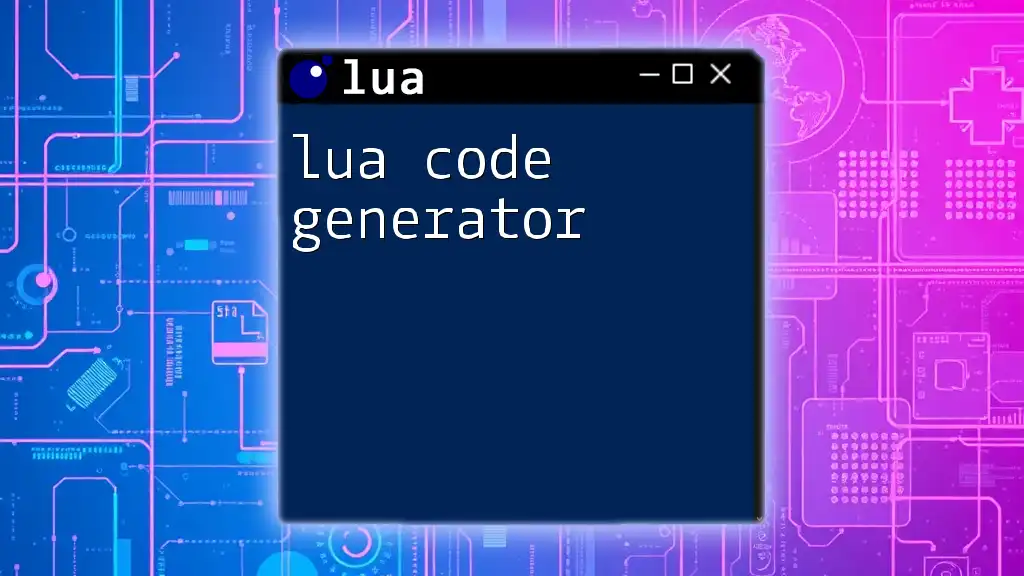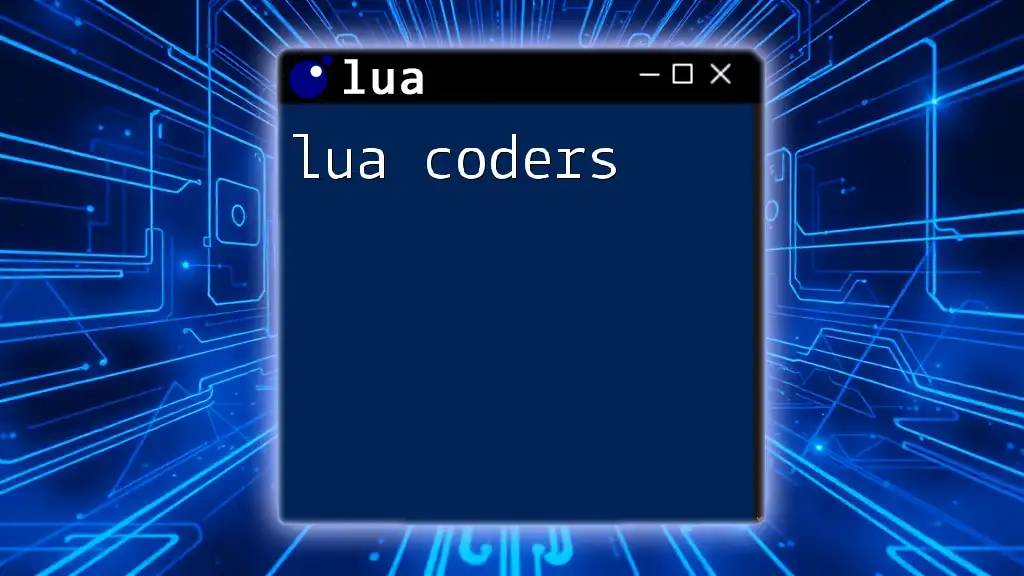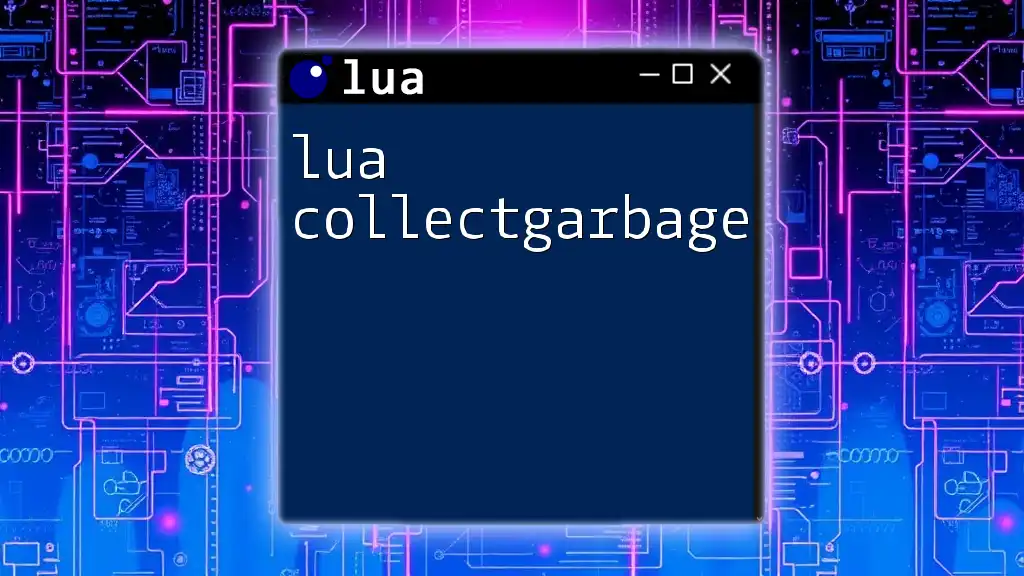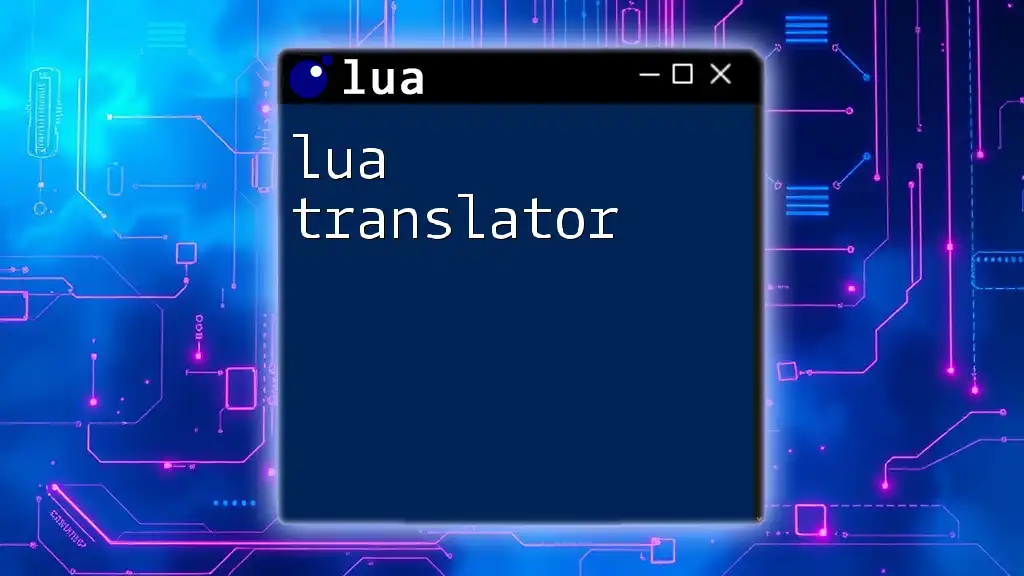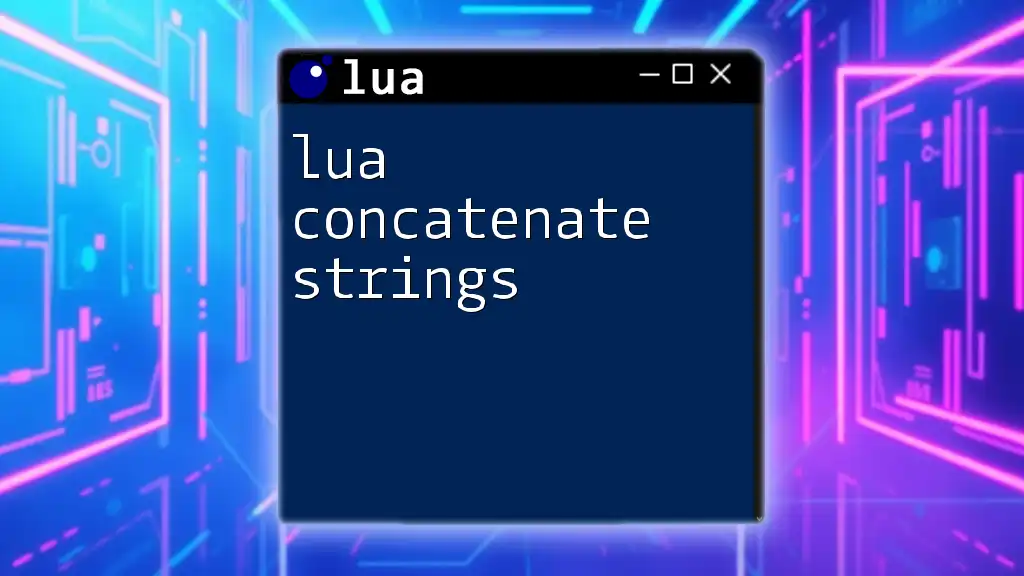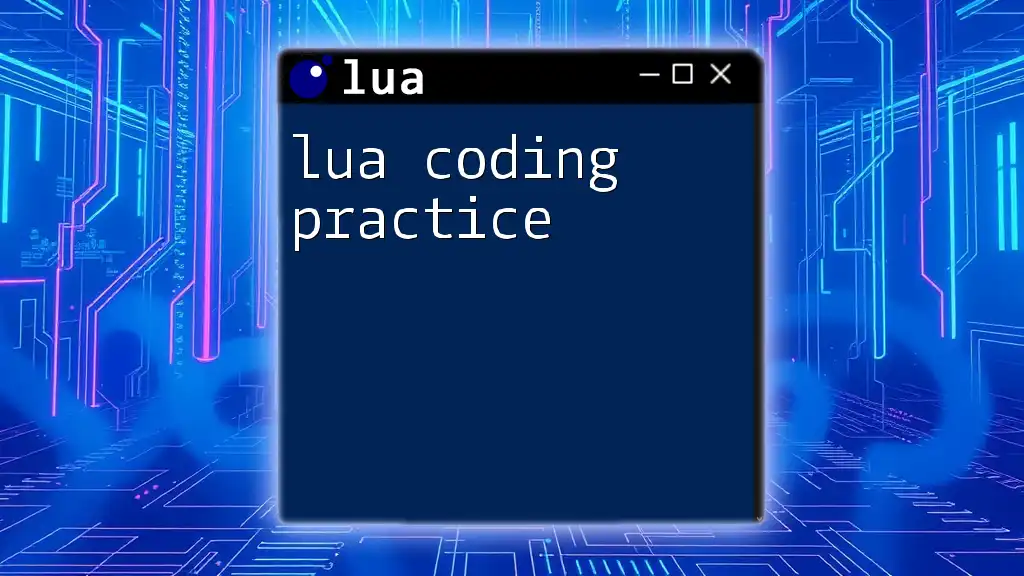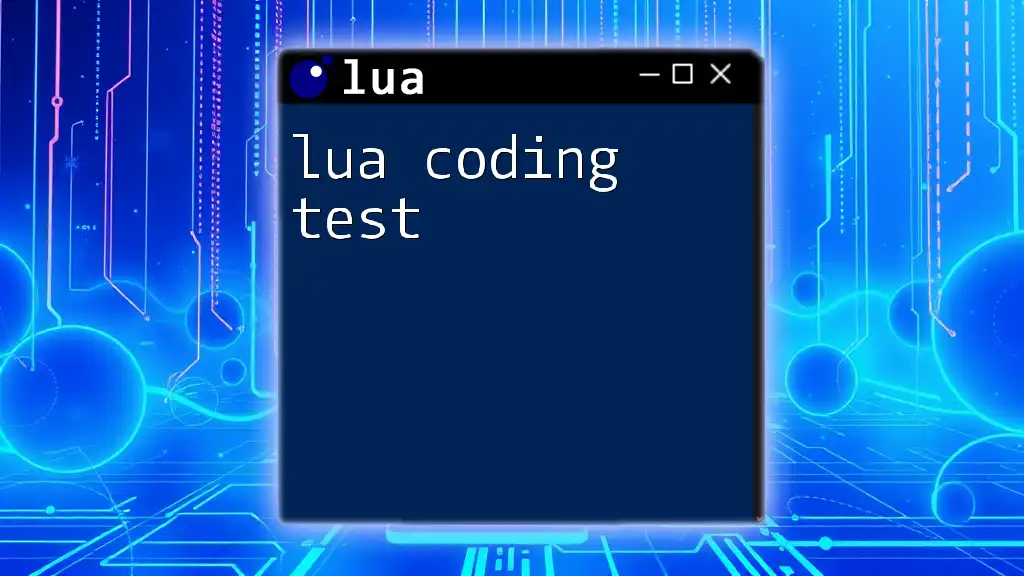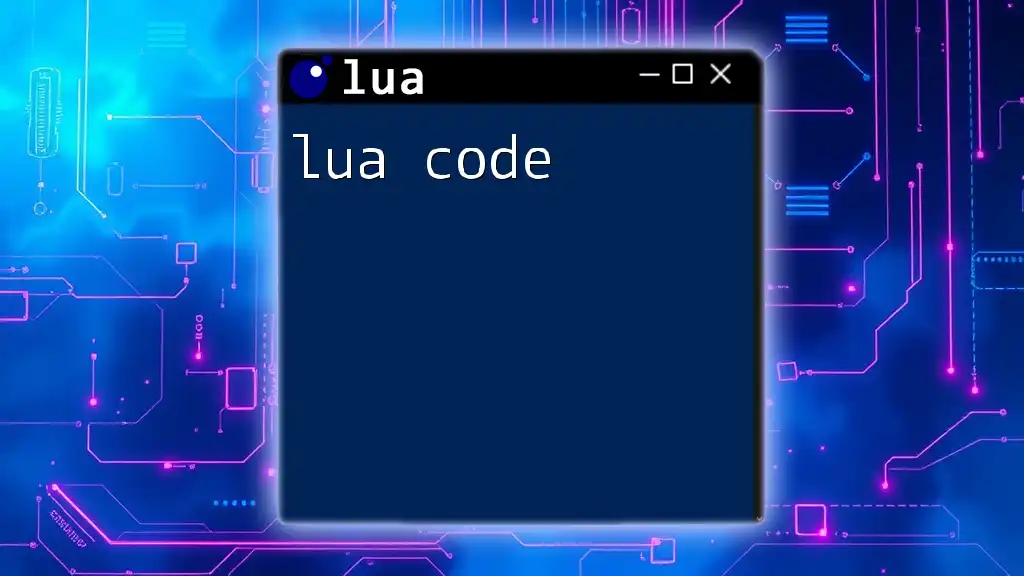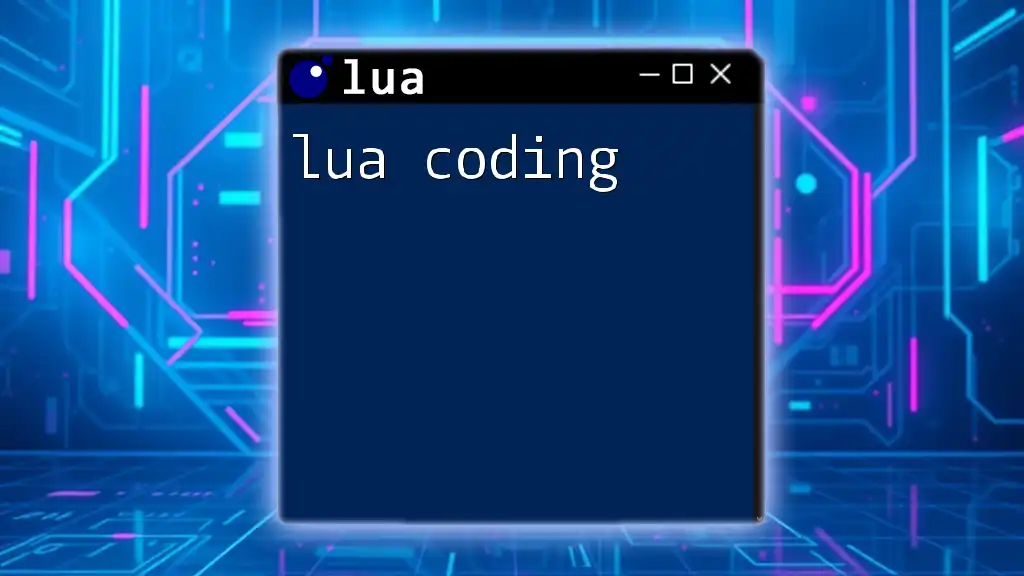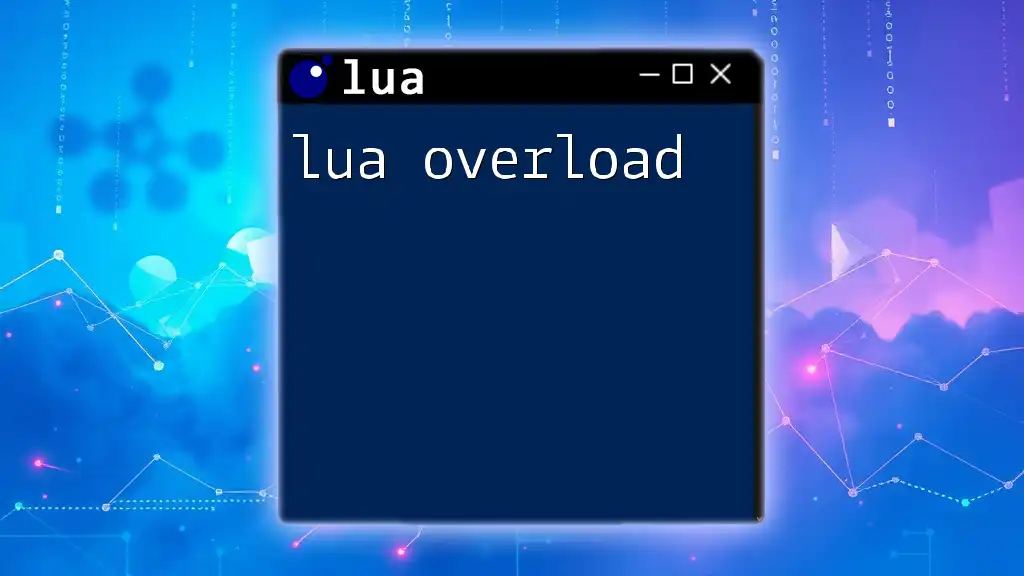A Lua code generator is a tool that automatically produces Lua scripts or commands, saving time and reducing manual coding errors.
Here’s a simple code snippet to demonstrate a Lua function that generates a greeting message:
function greet(name)
return "Hello, " .. name .. "!"
end
print(greet("World")) -- Output: Hello, World!
What is Lua?
Lua is a lightweight, high-level programming language known for its simplicity, efficiency, and ease of integration. Frequently used in game development and embedded systems, Lua allows developers to add scripting abilities to applications. Its combination of flexibility and power makes it a popular choice among programmers looking for a robust scripting platform.
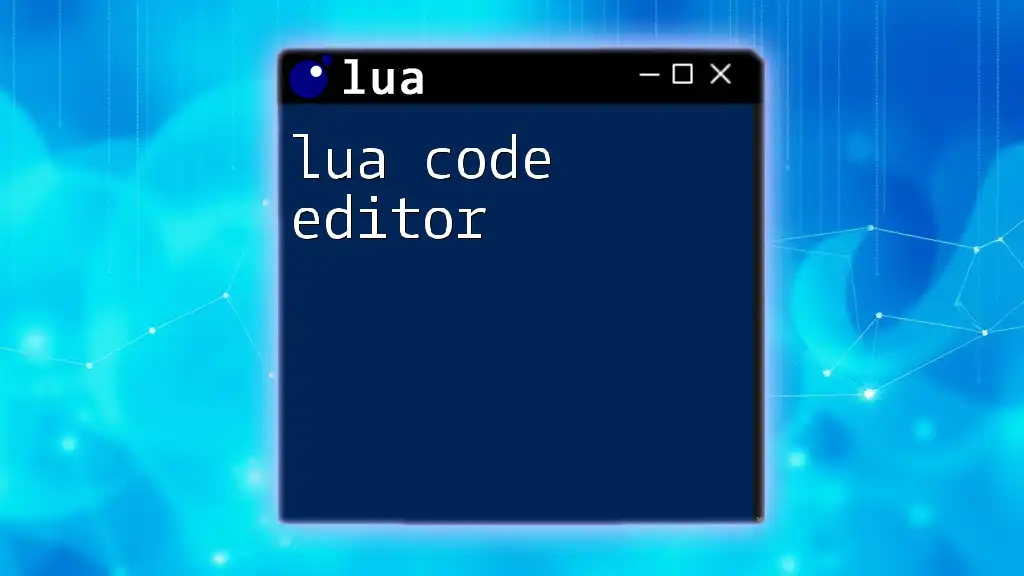
What is a Lua Code Generator?
A Lua code generator is a tool designed to automate the process of writing Lua scripts. It transforms high-level instructions or templates into fully working Lua code. This not only speeds up the development process but also helps maintain consistency and reduce errors in the code. By using a code generator, developers can focus on higher-level design and concepts rather than getting bogged down with repetitive coding tasks.
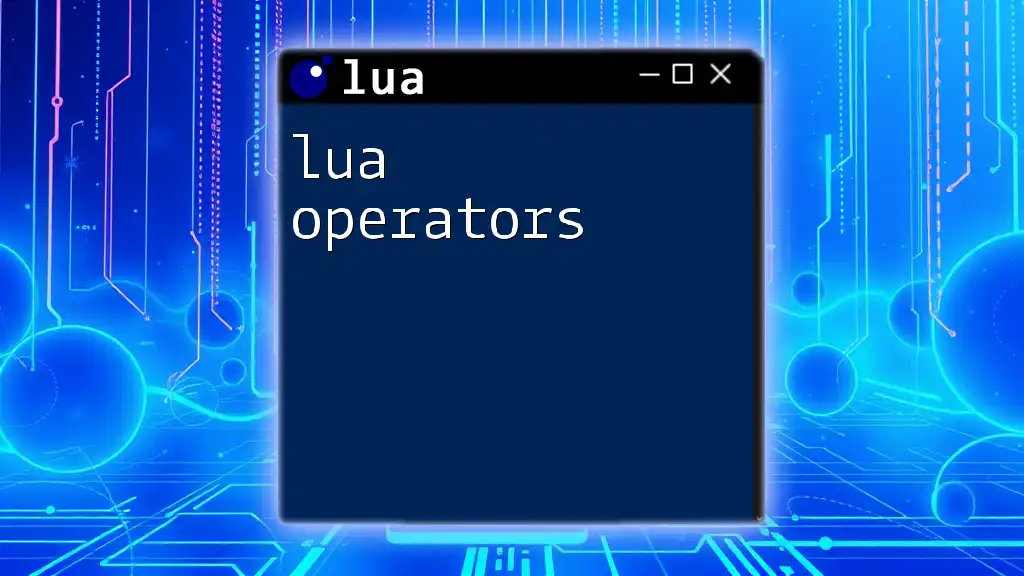
How Lua Code Generators Work
Understanding Code Generation
Code generation involves creating source code automatically based on specific criteria or templates. A Lua code generator takes user-defined input and produces ready-to-execute Lua code, which saves time and effort. This automated generation reduces the chances of manual errors and enables developers to scale their coding efforts effectively.
Components of a Lua Code Generator
Parser
A parser is the component that interprets the user input. It breaks down the input into manageable parts that can be used to generate Lua code. The quality of the parser significantly influences how accurately it can interpret the provided instructions.
Code Templates
Code templates are predefined formats or skeletons that the generator uses to create the final output. These templates ensure a level of consistency in the generated code, making it easier for developers to work with and maintain. By utilizing templates, developers can save time, as they won’t have to write the boilerplate code repeatedly.
Output
After interpreting the input and applying the relevant code templates, the generator outputs the final Lua code. This can come in various formats, but it should always be optimized and neatly formatted, making it easy for developers to read and understand.
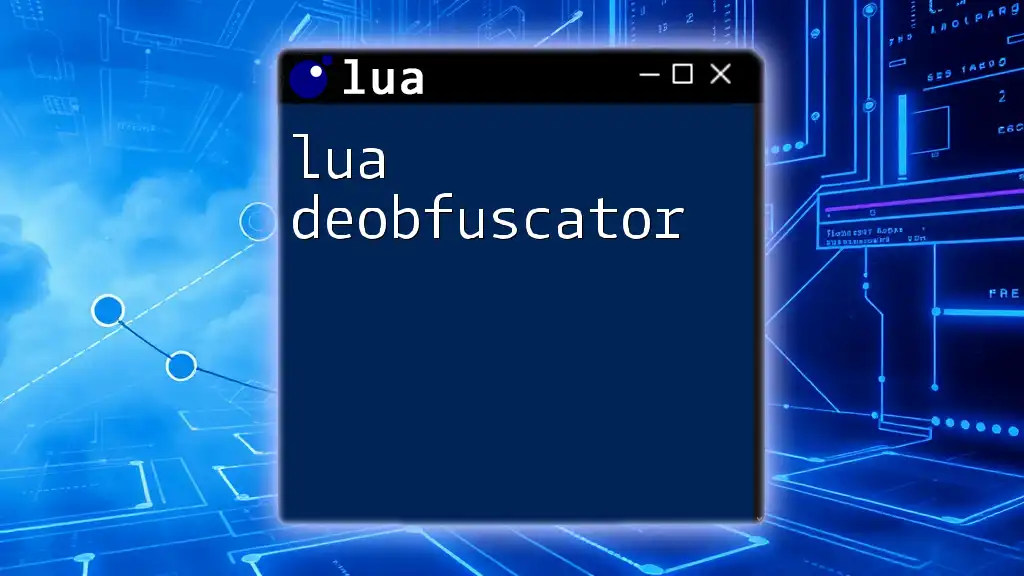
Popular Lua Code Generators
Overview of Available Tools
There are several widely-used Lua code generators available today. For example, Lua CJSON is a fast JSON encoder/decoder useful for applications requiring data interchange. Luvit, on the other hand, is a software stack built on Lua that allows asynchronous programming and can leverage many Lua modules.
Choosing the Right Tool
When selecting a Lua code generator, consider the following criteria:
- Project Type: Ensure that the generator is tailored to the specific type of application you're developing.
- Complexity: Choose a tool that matches the complexity of your project. Some generators handle simple tasks, while others can manage intricate applications.
- Community Support: A vibrant community means more resources, tutorials, and shared experiences, which can be invaluable.
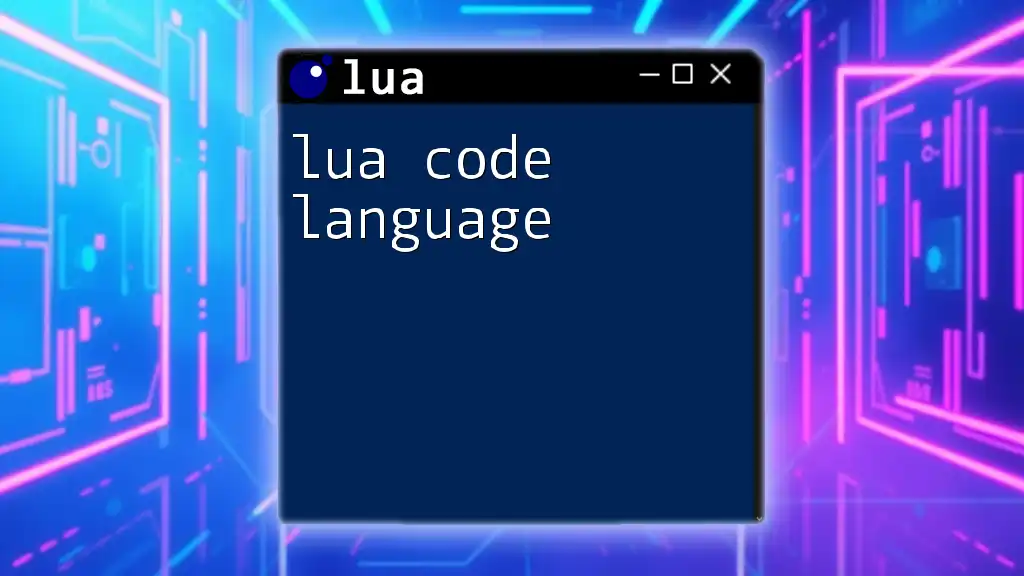
How to Build Your Own Lua Code Generator
Defining Your Use Case
Before diving into the development of your own Lua code generator, clearly define the use case it should address. Understanding your target audience and their needs will shape the features and functionalities of your generator, ultimately making it more effective.
Step-by-Step Guide to Creating a Simple Code Generator
Setting Up the Environment
Begin by setting up your development environment. Make sure you have Lua installed and familiarize yourself with any libraries that will aid your project.
Writing the Parser
First, develop a simple parser that can interpret user input. Here’s an example of a basic parser:
function parseInput(input)
-- Simple parser logic
return input:match("([%w]+)")
end
This function takes an input string and extracts the first word, which could represent a variable or function name.
Crafting Code Templates
Next, create reusable code templates that can be populated with user input. Here’s a sample template for generating a simple function:
local template = "function %s() print('Hello %s') end"
You can modify this template as needed, allowing for various outputs depending on the user’s requirements.
Generating Output
Finally, integrate the parser and template to generate the final code. Here’s an example function for generating Lua code:
function generateCode(functionName, arg)
return template:format(functionName, arg)
end
This function formats the template using the provided function name and argument, creating a complete Lua function as output.
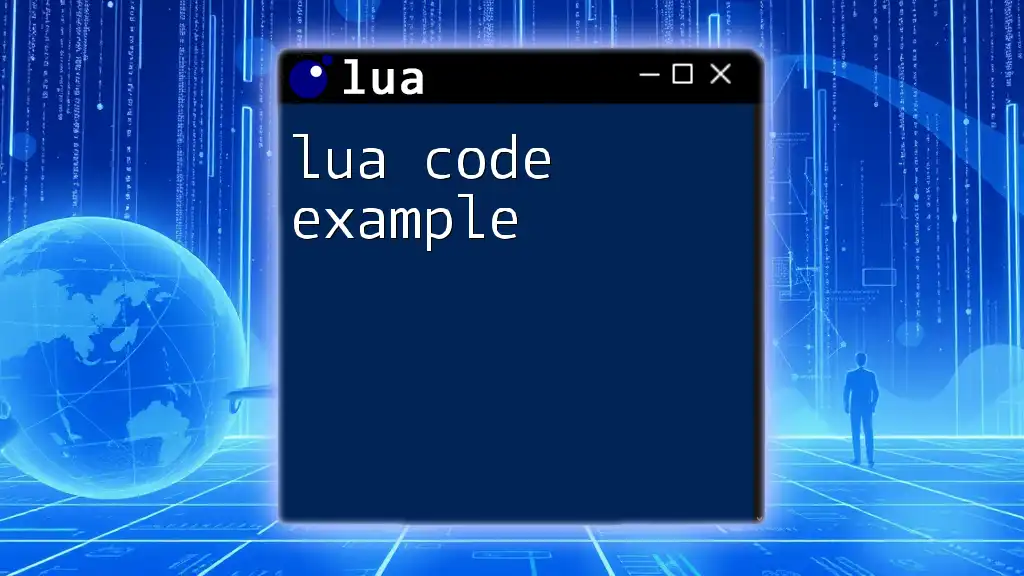
Practical Examples and Use Cases
Example 1: Generating Simple Functions
You can now use your code generator to create simple functions effortlessly. For instance:
local code = generateCode("greet", "World")
print(code) -- Output: function greet() print('Hello World') end
This output demonstrates how your generator can produce a complete function based on user input.
Example 2: Automating Repetitive Tasks
A Lua code generator is especially useful for automating repetitive coding tasks. For example, if you need to create multiple functions that follow a similar pattern, the generator can streamline this process—greatly reducing manual effort.
Case Study: Game Development
In game development, Lua is often used as a scripting language. A Lua code generator can be instrumental in generating scene management scripts, character behavior scripts, and more. By automating these repetitive tasks, developers can focus on more creative aspects, such as game design and player experience.
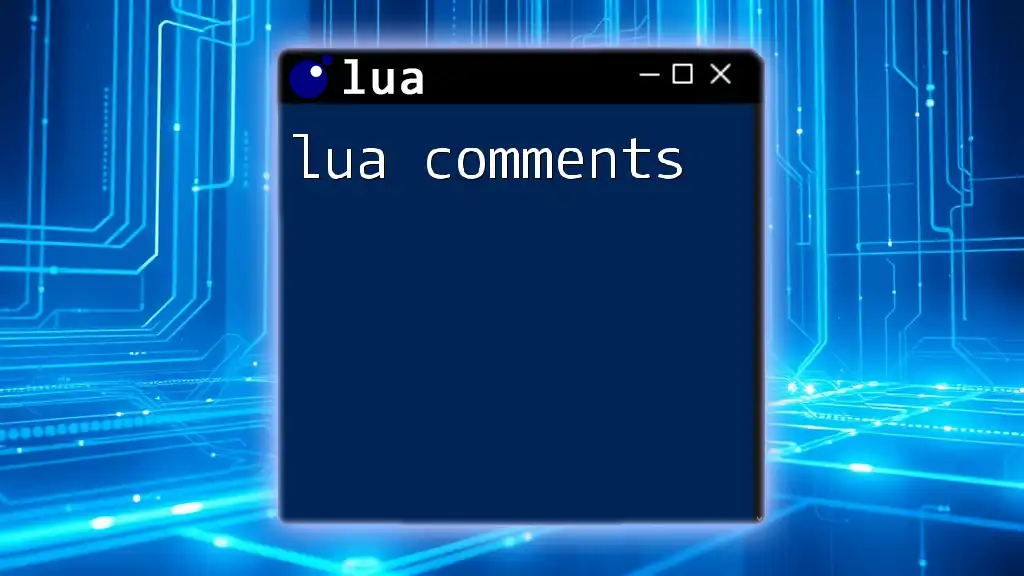
Best Practices for Using Lua Code Generators
Script Consistency
Consistency in generated code is vital. Ensure your templates maintain a uniform structure to facilitate cooperation among team members and ease future modifications.
Debugging Generated Code
Even with the help of a code generator, bugs can occur. Implement testing processes to identify and address potential issues in the generated Lua code.
Documentation and Maintainability
Thorough documentation is crucial. Be comprehensive in detailing how to use the generator, describe the templates, and provide examples, making it easier for others to adopt and adapt your tool.
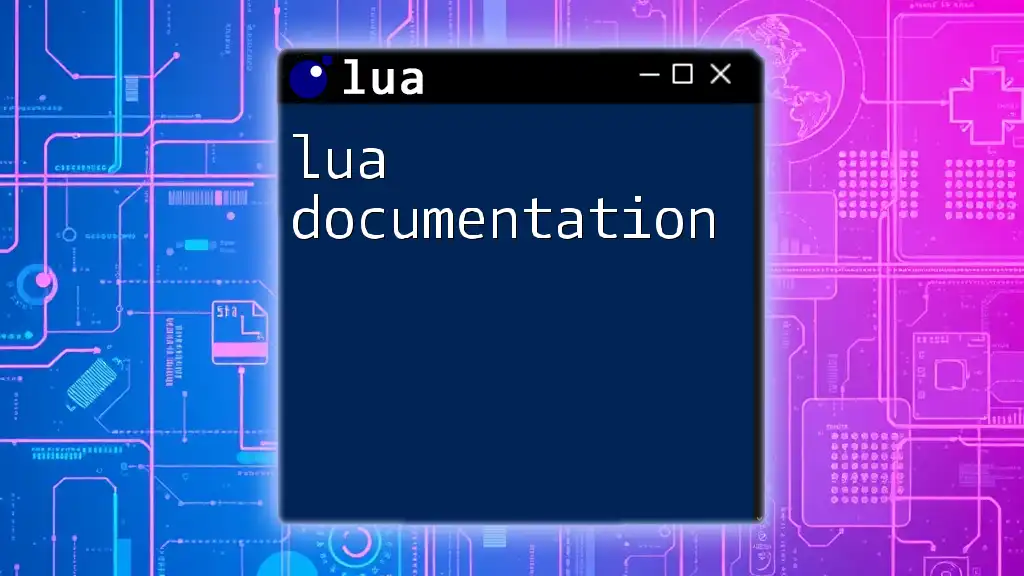
Conclusion
Lua code generators present a powerful solution for developers aiming to enhance their productivity while writing Lua scripts. Through automating repetitive tasks, maintaining consistency, and offering numerous templates, these tools enable programmers to focus on the bigger picture rather than tedious code writing. As you explore the world of Lua, consider how a code generator can benefit your projects and open opportunities for improved efficiency.
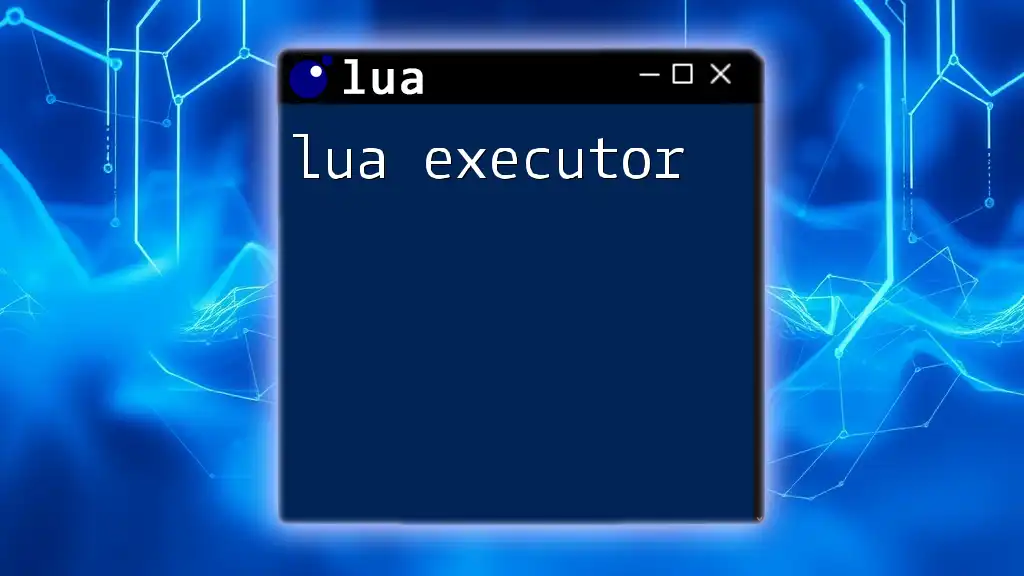
Additional Resources
Recommended Reading
Look for books and online resources that delve deeper into Lua programming and code generation techniques to broaden your understanding.
Community and Support
Participate in forums and online platforms, such as GitHub and Lua-specific groups, where you can ask questions, share experiences, and learn from fellow developers. Engaging with the community can significantly enrich your programming skills and experience.

